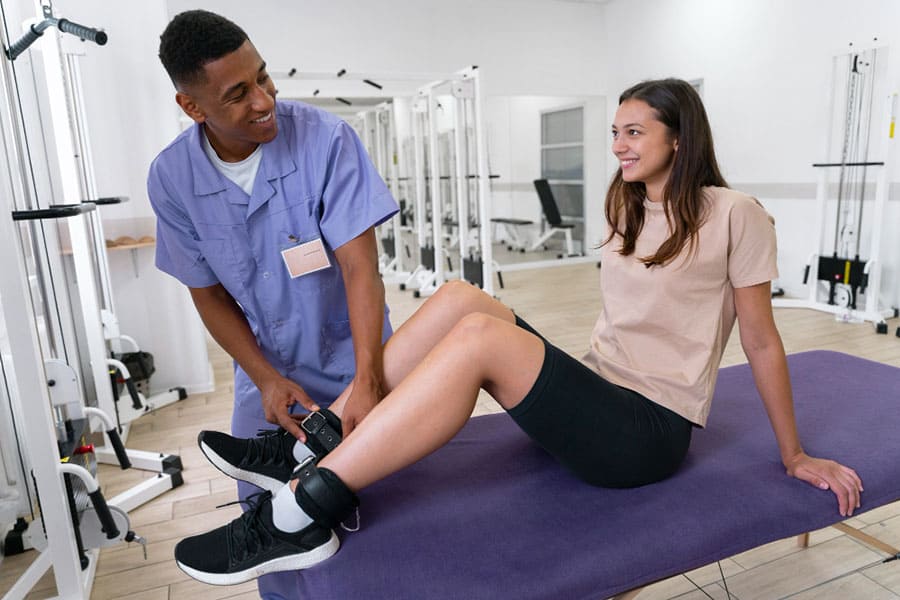Does Health Insurance Cover Car Accidents?
The sudden jolt, the screech of metal, the rush of adrenaline - a car accident can leave you physically and emotionally shaken. In the aftermath, amidst the chaos of paperwork and insurance calls, a critical question emerges: does health insurance cover car accidents?
The answer, like the Tampa traffic itself, is rarely straightforward. While your health insurance policy may indeed provide financial assistance for your injuries, navigating its intricacies and determining the right course of action can feel like a crash course in legalese.
Don't worry, The Right Spinal Clinic is here to help you navigate the road to recovery after a car accident. Let's explore the complexities of car accident claim and insurance coverage and get you the care you deserve.
Always Seek Medical Attention After a Car Accident
Even minor vehicle collisions can leave hidden damage. Whiplash, sprains, and concussions often manifest hours or even days later. Therefore, seeking medical attention immediately after an accident is paramount, regardless of the perceived severity of your injuries.
A thorough examination by a qualified healthcare professional can diagnose underlying issues, prevent complications, and establish a medical record for your health insurance carrier's purposes. Remember, your well-being is the top priority, and ignoring even seemingly minor discomfort could jeopardize your health and legal case.
Should I Use My Own Health Insurance After Being Injured in an Auto Accident?
This depends on several factors:
- Your health insurance policy: Review your plan's details to understand if car accident injuries are covered, and if so, what limitations exist regarding deductibles, co-pays, and covered treatments.
- Your auto insurance coverage: Most car insurance policies include Personal Injury Protection (PIP) coverage, which specifically covers medical expenses arising from accidents, regardless of fault.
- Fault and legal considerations: If another driver was at fault, their insurance may be responsible for your medical bills. Consulting an attorney or your health insurance company can help determine the best course of action.
In many cases, using your auto insurance's PIP coverage first can be advantageous. It may expedite your access to care, avoid out-of-pocket expenses, and prevent your health insurance premiums from rising. However, seeking guidance from a legal or insurance professional is crucial to ensure you maximize your coverage and legal options.
Can I Get Medical Treatment After a Car Accident Without Health Insurance?
Absolutely. Even without health insurance, you have options for receiving medical care after an accident:
- Emergency services: In case of serious injuries, call 911 immediately. Emergency care is your right and will be treated regardless of your insurance status.
- Charity care: Many clinics and hospitals offer programs for uninsured or underinsured patients. The Right Spinal Clinic, for example, is dedicated to providing affordable care to everyone in the Tampa Bay area.
- Government programs: Medicaid may be available for low-income individuals and families. Explore your state's specific eligibility requirements.
Remember, neglecting your health due to lack of insurance is never the answer. Explore your options and seek out the care you need.
Who Covers My Injuries In a Car Accident?
Ultimately, determining who covers your injuries depends on the specifics of your accident and the extent of your damages. Here's a breakdown of the potential responsible parties involved:
- Your own auto insurance If you have PIP coverage, it will likely cover your initial medical bills.
- At-fault driver's insurance: If another driver was responsible for the accident, their insurance company may be liable for your medical expenses and other damages.
- Your health insurance: Health insurance may come into play after your auto insurance benefits are exhausted or if another party isn't liable.
Navigating the complexities of car accident insurance can be overwhelming. At The Right Spinal Clinic, we understand the challenges you face and are here to help. We can assist you in understanding your coverage options, provide expert medical care, and connect you with legal resources if needed.
Does Health Insurance Cover Car Accidents?
One of the pressing questions that arise in most cases is whether your health insurance will cover the medical expenses incurred from your car accident injuries. The answer, like many things in life, isn't always a simple yes or no. It depends on various factors, including your specific health insurance plan and the circumstances of the car accident.
Let's delve deeper into the intricacies of how health insurance interacts with car accident injuries:
Regular Health Insurance
Most regular health insurance policies do cover injuries sustained in car accidents. However, certain limitations and stipulations might apply:
- Deductibles and co-pays You'll likely be responsible for your plan's deductible and co-pays before your insurance kicks in.
- Network restrictions: Depending on your plan, you might need to seek treatment from in-network providers to receive full medical coverage.
- Exclusions: Some policies may exclude specific types of injuries, such as those considered "experimental" or "pre-existing."
It's crucial to carefully review your health insurance plan's details to understand its specific coverage for car accident injuries. Remember, even if your plan covers car accidents in Florida, it's still wise to seek immediate medical attention regardless of perceived injury severity. Early diagnosis and treatment can prevent complications and help document your injuries for potential legal claims.
Med Pay
Certain car insurance policies offer an optional coverage called Med Pay. This health insurance coverage comes with its own set of benefits and limitations:
- Dedicated to medical expenses related to the accident Unlike regular health insurance, Med Pay specifically covers medical bills incurred from car accidents, regardless of fault.
- No network restrictions: You have the freedom to choose any medical provider you wish, without worrying about in-network limitations.
- Lower deductibles and co-pays: Med Pay often boasts lower deductibles and co-pays compared to regular health insurance, allowing for quicker access to care without significant out-of-pocket expenses.
However, Med Pay has some downsides to consider:
- Lower coverage limits Med Pay typically has lower coverage limits than regular health insurance, meaning it might not fully cover all your medical costs, especially for severe injuries.
- Not available in all states: Med Pay availability varies by state, so check your car insurance policy or contact your insurance provider for confirmation.
Ultimately, whether you choose to rely on your regular health insurance, Med Pay, or a combination of both depends on your specific needs and circumstances. Consulting with your insurance provider and a healthcare professional familiar with car accident claims can help you make the most informed decision.
Finding The Right Clinic for Your Car Accident Injuries
No matter where you end up going for your car accident injuries, make sure your doctor offers these services that will help you recover from your vehicle accident injuries.
- Chiropractic care: Gentle adjustments to restore spinal alignment and alleviate pain.
- Physical therapy: Customized exercises to improve strength, flexibility, and range of motion.
- Massage therapy: These can help stabilize the affected area and prevent further injury.
- Acupuncture: Traditional Chinese medicine to address pain and promote healing.
- Mental health support: Individual and group therapy to address emotional trauma and anxiety.
The road to recovery after a car accident can feel long and winding, but it doesn't have to be navigated alone. Finding the right clinic for your injuries is an important first step in your recovery.
Here at The Right Spinal Clinic, we understand the physical, emotional, and logistical challenges you face. Our team of experienced specialists is dedicated to providing you with the highest quality care and personalized support after a car accident.
Choose The Right Spinal Clinic as your trusted partner on the road to healing. We are here to guide you every step of the way.
Contact us today at (813) 392 2164 to schedule your consultation and start your journey towards a full recovery.




